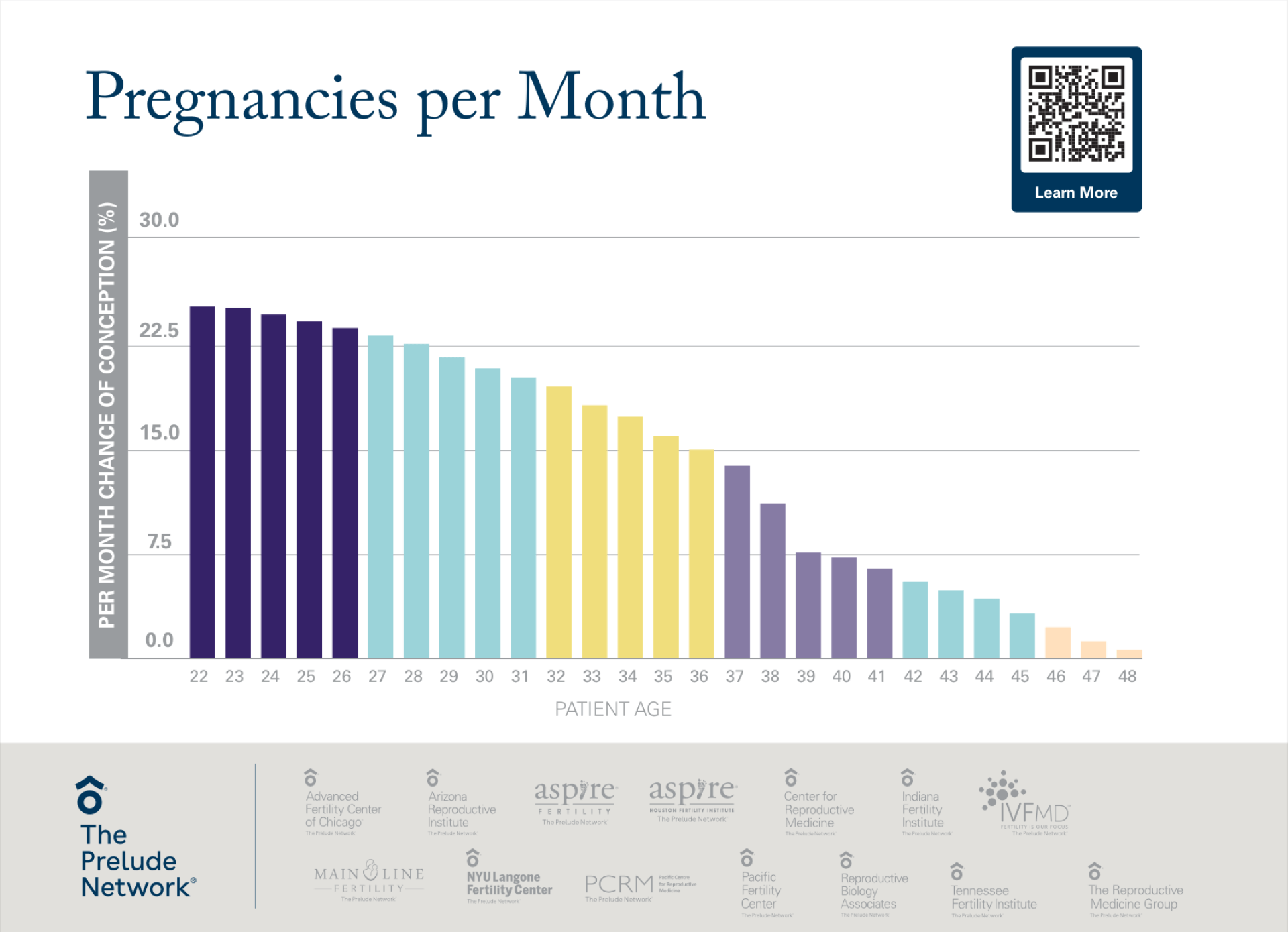What’s the best age to freeze my eggs?
Freezing your eggs at a younger age can preserve your options for when you’re ready.
Choosing when to start a family can be one of the most challenging decisions in your life. Children are a great joy, and an even greater responsibility. There are many reasons why you might feel that it’s in your best interest — and that of your future children — to wait until later in life to get pregnant. Then again, in a biological sense, time is not on your side.
Thankfully, there are several options to offset this natural decline in fertility. As you plot out your future, you might be asking yourself: Should I freeze my eggs? Depending on your circumstances, the answer may be “yes.”
At what age can I start freezing my eggs?
Technically speaking, the younger you decide to start harvesting and freezing your eggs, the more likely they are to be useful in the future. When you’re in your twenties and early thirties, your eggs are not only more plentiful than they will be later in life, they’re also generally healthier. Younger eggs are less likely to have chromosomal abnormalities that may lead to miscarriages or genetic disorders. Therefore, the "best age" to freeze your eggs from a purely biological perspective would be before you turn 32.

There are still benefits to freezing your eggs in your mid-to-late thirties. Notably, you may be able to prevent the risk of running out of viable eggs before you’re ready to conceive. If you think you may want to have a child beyond the age of 38, your chances of getting pregnant will be greater with eggs frozen at a younger age.
Will freezing my eggs guarantee that I can conceive later?
Unfortunately, there are virtually no guarantees when it comes to fertility. Freezing your eggs during your most fertile years is an imperfect countermeasure against your biological clock. It allows you to preserve the natural resource from which you can grow a baby, but not the environment in which it’s grown. After all, you’ll still be depositing that egg back into an older reproductive system.
It’s also not realistic to assume that every egg has the potential to develop into an embryo. Even when implanted in the body of someone under 38 years old, a given frozen egg has a 2-12% chance of becoming a baby. This is why many doctors recommend freezing all the healthy eggs you produce during a stimulated cycle, even if you only plan to have one or two children.
What are some of the benefits to freezing eggs at any age?
While there is not yet a way to completely shift the odds of conception in your favor, a recent study co-authored by Dr. Jaime Grifo found that the majority of women who froze their eggs before age 38 and later thawed them were able to have at least one baby. “Freezing eggs at a young age becomes an option to be one’s own egg donor at an advanced age,” Dr. Grifo noted.
A key benefit to freezing your eggs is that it creates options that may not otherwise be available to you in the future. For example, if your ovarian reserve is compromised due to illness, you can still carry a baby made from your own, healthy cells. And, should it become impractical for you to get pregnant, you may be able to consider surrogacy, enabling someone else to carry a baby made from your egg to term. If you should ultimately choose not to use your frozen egg supply to impregnate yourself, you may be able to help someone else who is suffering from fertility issues by donating your eggs to another parent.
Your decision whether to store some of your eggs for the future should be as informed as possible. You'll want to consider personal and medical factors, as well as logistical elements like where to store your egg. Start a conversation with one of our fertility specialists to determine if this is a wise next step in your family planning.